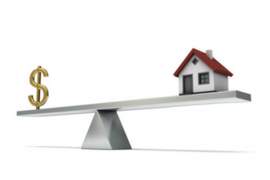
The Must Know About Reverse Mortgages

What is a Reverse Mortgage?
A Reverse Mortgage is classified as a type of mortgage that is only available to senior citizens; namely, retired individuals or individuals who meet the age of retirement eligibility - reverse mortgages are facilitated upon equity.
Reverse Mortgage and Equity
The institution of property lawisinstrumental to the development, maintenance, and legislation with regard tothe ownership of property, as well as Reverse Mortgage. Although Reverse Mortgage laws – akin to property laws - vary within the many regions of the United States:
• Equity is calculated as the difference between the market value of a piece of property and the outstanding monies owed to satisfy the payment of the home with regard to ownership
• Reverse Mortgages allow eligible individuals the opportunity to access cash in lieu of the calculation of equity; this can be invaluable for those undergoing financial hardships resulting from retirement, medical expenses, and a general lack of sufficient income.
• The status of the ownership and management of real property can be vastly altered by a Reverse Mortgage; this is due to the fact that monies, assets, debts, collections, and preexisting conditions are evaluated and analyzed with regard to the prospect of Reverse Mortgage on the part of the borrower in question.
Taxation of Reverse Mortgage
Fees incurred as a result of a Reverse Mortgage are only eligible as tax deductions subsequent to the fulfillment of the mortgage loan or the sale of the property; all equity exchanged for monies are deducted from the total amount of the outstanding payment required for the satisfaction of the mortgage in question.
The Reverse Mortgage Process
The procedures and legislation not only implicit in the Reverse Mortgage process, but also the process of obtaining aReverse Mortgage can fluctuate on an individual, case-by-case basis. Elements examined in the determination of the validity and legality of a Reverse Mortgage exist in conjunction with preexisting factors, which include financial state, solvency, solubility, evaluation of assets, the condition of the property, in addition to any and all conditions and exception expressed in the initial property agreement.
• Prior to a Reverse Mortgage settlement, there is a payment levied equivalent to 2% of the total value of the property; this payment is required for the substantiation of a Reverse Mortgage – this payment is required in both the United States and Canada
• Although no monies are directly required, payments must be submitted subsequent to the receipt of cash value-balanced against the amount of equity or incurred against the preexisting total of the mortgage loan in question.
Reverse Mortgage Legal Assistance
All details, records, and supplemental evidence expressly requested by applicable Reverse Mortgage documentation and applications should be provided in the most expedited fashion; furthermore, all deeds, asset lists, and related liabilities should be submitted - Reverse Mortgage forms should be completed to their fullest extent and in a detailed fashion. In the event that an individual experiences difficulties with regard to the Reverse Mortgage process, they are encouraged to consult with an attorney specializing in the field of Reverse Mortgage legality, property law, elder law, contract law, and insurance.
NEXT: What You Should Know About Interest Only Mortgages




















